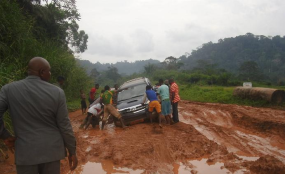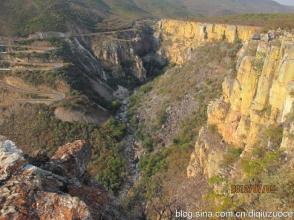The Presidency has said that the country’s ailing economy would bounce back fully after the 2016 statutory budgets of corporations and agencies are passed by the National Assembly and subsequently assented to by President Muhammadu Buhari.
This is even as the President assented to the N241 billion FCT budget for 2016 fiscal year.
The government attributed the difficulty it was having in revitalizing the troubled economy to the delay by the National Assembly to treat and pass the budgets for urgent assent and implementation.
It also said the development was negatively affecting job creation and as a result, tasked the legislature to brace up towards doing the needful.
President Buhari’s expectations on the passage of budgets of the 38 agencies among which include Nigerian National Petroleum Corporation, NNPC, Central Bank of Nigeria, CBN, Federal Inland Revenue Service, FIRS, Nigeria Customs Service, etc, was stated yesterday by his Senior Special Assistant on National Assembly Matters ( Senate ) Senator Ita Enang, at a media briefing in Abuja.
Enang at the briefing said passing of budgets of the statutory corporations and agencies was a requirement of the law that must be carried out by the National Assembly .
According to him, the urgent need for the passage of the budget of the statutory agencies was imperative because the total expenditure of their collective budgets almost equal the total budget profile of the country which stands at N6.06trillion.
Hear him:”Now, if the corporations and agencies’ budget is up to about N4 trillion, that means we will be having a budget of about N10 trillion in the country to implement for this year and when approved, it will make additional money available in the economy with its positive multiplier effects”, he said.
He added that passing the budget of government corporations would also create and open up employment opportunities in different agencies and parastatals.
He noted that the Federal Capital Territory Appropriation Act, which has been assented to by President Buhari will also create job opportunities in formal and informal sectors of the economy.
He said: “The Federal Capital Territory Appropriation Act, 2016 passed by the National Assembly has been assented to by Mr. President.
“The legal implementation of the Budget, therefore comes into effect now, which will result in employment in the formal and informal sectors within the territory through projects implementation.
“Some Nigerians have asked questions as to the legal and Legislative grounds for the laying of the Budget of Statutory Corporations before the National Assembly for consideration and passage.
“The Fiscal Responsibility Act, 2007 requires that the Budget of the Agencies among others be laid before the Assembles by Mr. President, in addition to, and independent of the annual Appropriation Act.
“The rationale are: It is a requirement of the law that the National Assembly as a Legislative body should consider and pass the Budget of each of them.
“It is what is spent in the National Budget together with the totality of the expenditure of the collective of the Government Corporations that amount to the total Annual Expenditure of the Country.
“The vacancies created by retirement in each of these parastals and the new employable vacancies are determined by the Budgetary requirement of the Agencies as will be approved by the National Assembly. Therefore the other rationale for this is to create, regulate and open up employment in the different parastals.
“It is also to stimulate the economy, in that there are so many capital project in the parastals which when approved by the National Assembly, the parastals will award thus releasing money and stimulate cash flow into the economy.
“It will also ensure accountability by the Corporations because they will only raise and spend as approved by the National Assembly and will increase activism of the National Assembly in her oversight Responsibility because they will be overseeing implementation as approved, and know surplus Revenue to capture for subsequent years, Appropriations.
“It will increase Non – Oil Revenue internally generated. The Agencies are under the Law to keep 20% their operational surplus and remit 80% to the Federal Government”.









